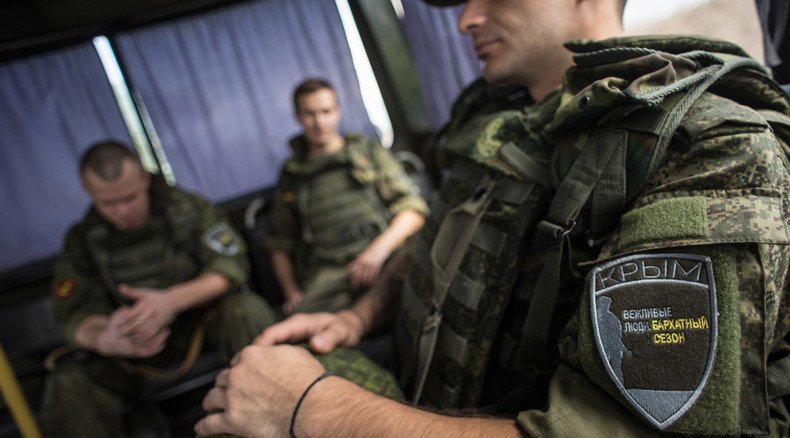Defense Ministry launches anti-swearing campaign in Russian armed forces

The Russian Defense Ministry plans to combat swearing in the ranks using the extremely successful “polite people” meme used to describe Russian soldiers who provided security during the 2014 referendum in Crimea.
The ministry announced its plans in an official letter to the “All-Russia Parents Assembly” public movement, in which senior officers promised that swearing will soon be a thing of the past in the military. The letter was a reply to the movement’s September address to Defense Minister Sergey Shoigu, in which activists declared, “It is not right when military servicemen, from generals and admirals to privates and sailors, use foul language, dishonoring their uniforms and the image of the Russian warrior.”
“No one used dirty language in the Russian Army before the Bolshevik Revolution. No one swore under [famous 19th century commanders] Suvorov, Kutuzov and Ushakov, and we had the most powerful forces in the world,” the activists said in comments to the media.
The ministry promised to release a special booklet on the inadmissibility of swearing in the near future. It revealed that the planned title of this work will be “Polite People.” This was the popular nickname given to soldiers who were stationed at the Russian military base in Crimea in 2014 and who backed the local self-defense units in providing security at the referendum that led to the republic’s independence and accession into the Russian Federation.
READ MORE: Putin acknowledges Russian military serviceman were in Crimea
The book will be prepared in cooperation with specialists in etiquette and protocol and will touch upon the general rules of civilized behavior both on the military bases and in everyday life. One of the authors of the book, Ivan Artsishevsky, said in comments with Izvestia daily that the move was simply a return to old traditions of the Imperial and Soviet armies where officers studied etiquette in military academies.
Defense Ministry officials also assured activists that officers in charge of moral and political training are already telling soldiers that the use foul language in the service is inadmissible.
However, a member of the All-Russian Parents’ Assembly, Vladimir Rosnovskiy, told reporters that he doubted that the announced measures would be effective and added that commanders must use punishment to ensure that the ban really works.
The head of the Russian Military Servicemen’s Union, Oleg Shvedkov, told reporters that in his view it was much easier to get rid of drinking, smoking and drug addiction in the military than to ban swearing. Shvedkov added that when he served as a Navy officer on a submarine in 1986 he tried not to use swear words and this made the rest of the crew to look at him as if he were “an alien body.” He also said that after 18 months he also started swearing and only tried not to make it too personal.
Former elite test pilot Vladlen Rusanov voiced a different approach to the problem. “People must be naturally polite and we should not start any special campaigns,” he said. “If you ask me if people should use bad language in the military, the answer will be no, but if this helps in solving some combat tasks then of course I will say yes. It all depends on the ultimate objective.”












